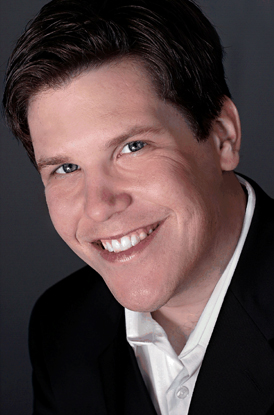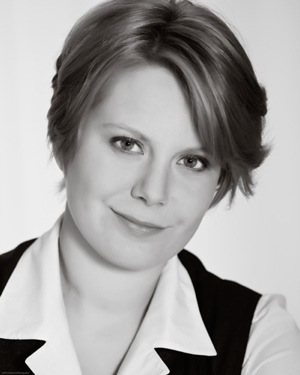Berkeley Community Chorus tackles the Big Book in a tight space
Under the baton of conductor Ming Luke, on June 13 the Berkeley Community Chorus and Orchestra (BCCO) performed Felix Mendelssohn’s Elijah, a long oratory that he completed the year before his death.
 During a very satisfying evening, several things were notable. Firstly, the BCCO, which numbers some 200 singers, crowded 175 of its members onto the stage of UC’s Hertz Hall, along with a decent orchestra of 45, pushing the limits of the space. In that lofted and wood-paneled hall, they delivered a veritable wall of sound. It is a rare experience to swim in that overwhelming sound, and the chorus’ first entrance, “Help, Lord!” thundered through the space, particularly fitting to the stern subject of Baal worship and pillars of fire (and to the warnings of a Fire Marshal).
During a very satisfying evening, several things were notable. Firstly, the BCCO, which numbers some 200 singers, crowded 175 of its members onto the stage of UC’s Hertz Hall, along with a decent orchestra of 45, pushing the limits of the space. In that lofted and wood-paneled hall, they delivered a veritable wall of sound. It is a rare experience to swim in that overwhelming sound, and the chorus’ first entrance, “Help, Lord!” thundered through the space, particularly fitting to the stern subject of Baal worship and pillars of fire (and to the warnings of a Fire Marshal).
Secondly, even the soloists had a meaty presence, with tenor Brian Thorsett sealing the deal in his every solo. In his “Man of God…” there is a lovely control of shape, where he focuses the interior of the sound as well as polishing its outer edges. And in “See now he sleepeth…” (verse 27) he entered with a very high note that softly penetrated to the back of the hall, truly visited by the angel whose part he sang.
And lastly, the chorus’ diction was so careful as to render their passages understandable, even in that multitude. It was clear that they had worked hard on each gesture and still had eyes for their conductor.
 What was surprising for some was Mendelssohn’s choice of text, which was drawn from verses of the Old Testament that are understated in our era. Rather than a Being of forgiveness or understanding, Elijah’s God leaned more towards a wrathful and jealous Omnipotence. “Blessed are the men who fear him…” sang the chorus, translating their righteous harmonies and holy wrath into a spine-tingling experience.
What was surprising for some was Mendelssohn’s choice of text, which was drawn from verses of the Old Testament that are understated in our era. Rather than a Being of forgiveness or understanding, Elijah’s God leaned more towards a wrathful and jealous Omnipotence. “Blessed are the men who fear him…” sang the chorus, translating their righteous harmonies and holy wrath into a spine-tingling experience.
But then the passage turns. “They ever walk in the ways of peace,” they concluded, revealing the compassion beneath the more fearsome aspects of a Prophet, nicely inhabited by baritone soloist James R. Demler. And after his passages of brimstone and fire, Demler prays for his own death and we can hear real sincerity and complexity of character in his voice: “It is enough…” (verse 26).
 Ming Luke demonstrated tight control, conducting with an economy of motion and huge energy, and informing the excellent dynamics of the work. As large as that tapestry was, it remained taut. Mendelssohn, known for his facility with melody, leans on simple yet intertwining lines for the vocal parts, combined with more complex harmonies for the instrumental orchestration. To modern audiences, he is treading the graceful steps of Handel before passing the baton to Brahms, whose genius was harmonic.
Ming Luke demonstrated tight control, conducting with an economy of motion and huge energy, and informing the excellent dynamics of the work. As large as that tapestry was, it remained taut. Mendelssohn, known for his facility with melody, leans on simple yet intertwining lines for the vocal parts, combined with more complex harmonies for the instrumental orchestration. To modern audiences, he is treading the graceful steps of Handel before passing the baton to Brahms, whose genius was harmonic.
Soloist Carrie Hennessey opened the second half with a lovely soprano aria, “Hear ye Israel,” with a high tessitura that then descended into her own rich low notes.
Yet another pillar of Friday’s performance was mezzo-soprano Megan Berti, whose agile voice and buttery colors balanced the strings in her solos. She had the clarity and heft of Handel’s passionate Dido, combined with a svelte touch of German Lieder.
It is impressive to hear such commitment from a community-based choir, especially one that takes all newcomers without audition.
—Adam Broner
Photo top of conductor Ming Luke, by Angela Landregan; below, tenor Brian Thorsett, photo by Claire McAdams; and mezzo-soprano Megan Berti.
